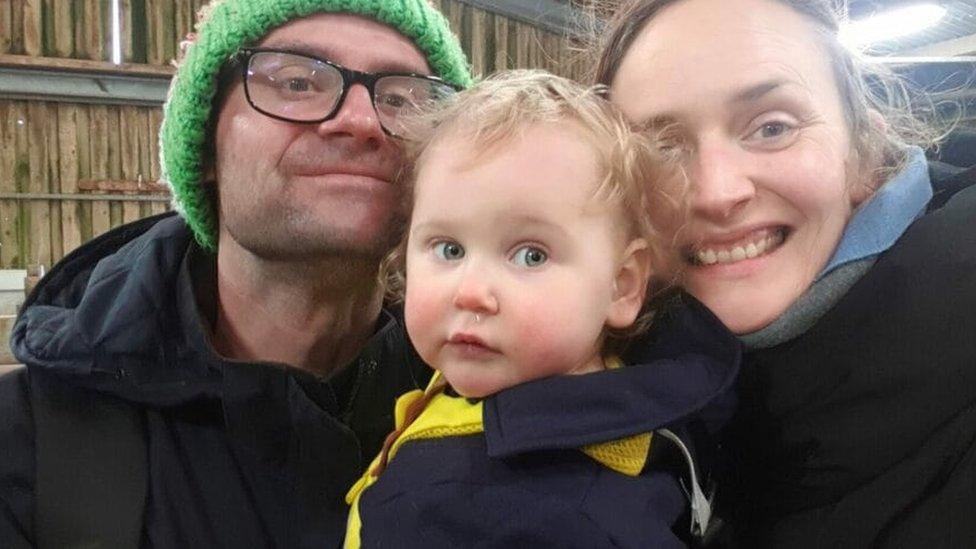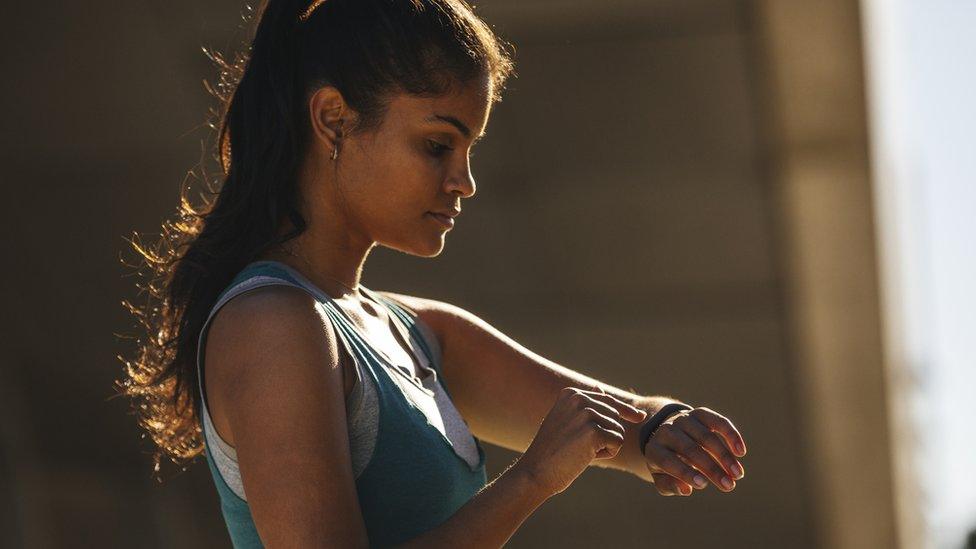Maidenhead couple help gadgets project after health scare
- Published

Chris Monk (left), was alerted to his atrial fibrillation by his sports watch
A couple have worked with scientists to find out how smartphones and sports watches can improve health after one of them was alerted to an issue by theirs.
Chris Monk, from Berkshire, finished a routine 10k (6.2 mile) run in 2019.
When his sports watch showed his heart rate was not slowing down, he was admitted to hospital and found to have atrial fibrillation, external.
Mr Monk's wife joined a group to help scientists work out how similar gadgets' data can help people's health.
The 38-year-old from Maidenhead said: "I am extremely lucky that I was running with a heart rate monitor when I had my first episode of atrial fibrillation.
"I was able to show the cardiologist the exact moment it started alongside exactly what I was doing when it happened. This is a great first step in making that a reality for more people."

The British Heart Foundation's Data Science Centre is doing work into how sports watches can monitor health
The British Heart Foundation's (BHF) Data Science Centre said the study is crucial in helping more people's health.
Mr Monk's wife Nicola, who works for the NHS, joined seven other members of the public to help design a study to understand how data can support cardiovascular research.
"It's all thanks to his smartwatch that Chris was diagnosed. It would've been so easy to dismiss if we hadn't had that data," she said.
Dr Jackie MacArthur, a senior scientific programme manager at the BHF's Data Science Centre said: "If this could be securely linked with a person's NHS data, with their informed consent, this data could provide new insights into the causes and effects of cardiovascular diseases, and improve disease prediction, diagnosis and treatment."

Follow BBC South on Facebook, external, X, external, or Instagram, external. Send your story ideas to south.newsonline@bbc.co.uk or via WhatsApp on 0808 100 2240, external